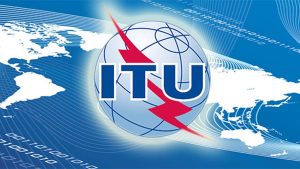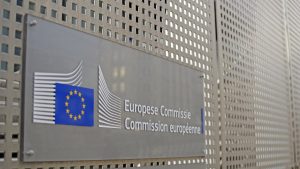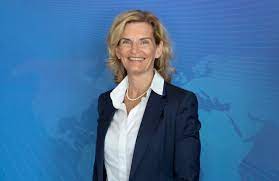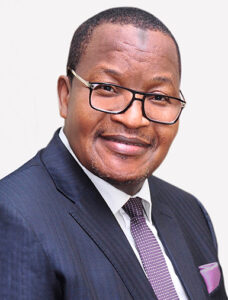- New Horizons accelerates Nigeria’s tech future with multi-institution partnerships, AI empowerment
- NCC, NSCDC caution construction firms, others over rising fibre optic cable damage
- ‘Nigeria’s network gaps kill battery, overheat mobile phones’
- NCC, CBN roll out refund system for failed airtime, data transactions March 1
- Energy, fintech lead as African startups raised $3.2b in 2025
- Telcos deploy 2,800 sites to improve telephony service in 2025
- NCC tasks operators on investments, corporate governance, avoidable outages
- NCC gives operators 45 days to regularise shareholding structure
- 174m Airtel customers in 14 countries to get satellite phone connectivity
- DrugStoc, The Nest, CcHub drive regional healthtech growth with hackathon
- PEBEC ranks NCC among top five best-performing govt agencies in 2025
- Anambra deepens investments in digital infrastructure, AI systems to boost governance
- Telecom sector shows resilience, contributes 9.1% to Q3 GDP
- Ogun records lowest telecom vandalization as telcos commend NSCDC
- Conference to champion responsible AI in Africa
- AI, privacy tools fuel 75% local businesses growth on Zoho
- NCC welcomes Olorunnimbe, others, assures on Nigeria’s digital economy drive
- Tim Akano Foundation awards digital skills scholarships to 122 students
- Telcos alert FG to possible collapse of sector due to rise in vandalism
- New Horizons bags industry recognition for innovation
- New Horizons CEO bags multiple awards from CPC, NIPR, OAU, others
- Telcos agree to USSD End-User Billing system, commence migration today
- Remita processes N60tr transactions, plans expansion to regional markets
- NCC directs telcos to inform consumers about major outages
- ABUAD partners New Horizons to embed 4IR skills into academic curriculum
- Banks complete N160b USSD debt payments to telecoms operators
- Banks increase SMS alert charges, blame telcos 50% tariff hike
- Lawmaker partners New Horizons to empower Ogun youths
- MTN records N133.7b profit in Q1, assures of network investment
- NCA 2003 for review as telecom operators commit $1b on upgrades
- Subscribers to pay USSD charges with airtime as telcos, banks consider new system
- 783 operators to complete 5G transition as 326 networks go live
- MTN pays tribute to late Dozie, lists his achievements
- Subscribers to lose unused airtime after prolonged inactivity on telephone line
- Women tasked on technology devt as Lagos lawmaker, New Horizons train 300
- New Horizons offers lifetime employment to visually impaired corps member
- Kwara, IHS target 10,000 jobs from new Ilorin innovation hub
- New Horizons partners varsities on ICT projects
- Telcos implement 50% hike as MTN increases data, SMS costs
- Telco’s tariff increase and NCC’s patriotism
- Nigeria ended 2024 with 165m active telephone lines, 4m 5G users
- GSMA projects $150m new investments into telecoms sector via 50% telephone tariff hike
- NCC renews MTN 800MHz spectrum license till 2034
- Telcos claim 50% tariff hike not sufficient as lawyer carpets NCC
- Wini Group plans first AI varsity in Nigeria to boost Africa’s tech adoption
- Marketbuddy debuts to connect buyers, sellers in Nigeria
- Telecoms tariff hike shouldn’t be more than 30 to 60%, says Minister
- Telecoms operators earn N5.3tr in revenue, adds 14% to GDP in 2023
- Telcos get NCC approval to disconnect UBA, Zenith, Wema USSD platforms
- InnovateAI confab holds in Lagos February 21
- Telecoms operators get tariff hike as minister demands service improvement
- Telcos propose 100% tariff hike amid backlashes
- Telcos consider service shedding in states to stay afloat in 2025
- Concerns as Starlink hike prices again, sets tone for sector’s tariff hike regime
- NCC approves MTN’s disconnection of Exchange Telecommunications over debts
- MTN’s NTEL spectrum lease extension to boost 3G, 4G coverage
- Amid concerns, MAFAB explains 5G operations, plans 102 sites
- Nigeria’s 5G penetration leaps by 2.1% as data consumption hits 850,249.09 terabytes
- NCC denies Starlink on price hike, plans sanction
- Nigeria to conclude NIN-SIM linkage exercise by September 14 as 153m lines linked
- Telecoms infrastructure vandals in trouble as CNI law becomes effective
- NCC directs telcos on tariffs transparency
- LH acquires majority stake in 9mobile, reeconstitutes board
- ITU ranks Nigeria high in digital transformation readiness
- FG wants Nigerians to apply for ECOWAS cybersecurity hackathon
- 9mobile denies involvement in any bank debt, court order
- TECNO, UNICEF partner to boost Nigeria’s digital learning drive
- Telecoms operators exchange 1,911 users as Lagos, 2 others get 23% subscribers
- Nigeria’s six-geo-political zones to get AI, blockchain research centres
- Germany explores potential of exchange programmes with Nigeria
- Nigeria seeks joint W’Africa regional protection of undersea cables
- Telcos disconnect 40m telephone lines, to bar more SIMs
- Anambra, Lagos align for Nigeria’s ICT growth
- Bolt completes post-mentorship exercise for top drivers
- ISPs get traction but data consumption drops to 645,407terabytes
- Teledensity, broadband penetration drop as NCC updates telecoms indicator
- Telecoms licensees to be accountable as Maida unveils agenda
- Disconnection puts on hold as Globacom, MTN reach ‘agreement’
- TECNO offers N108m cash, prizes in promo
- AI in Nigeria hosts artificial intelligence summit in Lagos
- MTN gets NCC’s approval to disconnect Globacom from network
- NCC moves against unauthorized use of 5.4GHz frequency band
- Nigeria, others sign updated radio regulations to deepen global connectivity
- NCC orders telcos to completely bar unlinked SIMs by February 2024
- NCC tasks investors as Meta’s 45,000km undersea cable comes to Nigeria
- NCC rallies Nokia to invests in Nigeria’s technology sector
- Bolt Nigeria awards top 10 drivers with €25,000 seed funds
- SMEs get Council as Google grants #75m to 15 small businesses
- Airtel assures Nigerians of 5G, mobile money services
- Telecoms operators mandated to improve telephony services
- 20 drivers pitch for honours at Bolt Accelerator Programme
- Maida gets Senate’s confirmation to lead NCC
- Guiding entrepreneurs towards leadership excellence: The Nest’s mission and Dr. Emmanuel Toye Sobande’ international merit award
- NACOS honours Akano as digital economy champion
- Vbank, The Nest, WIT empower 1500 women with tech skills
- Nigeria’s Telecoms Sector: A beacon of hope amidst challenges
- Nigeria’s fixed telephony gets new numbering format, change takes effect January 1, 2024
- Bolt empowers drivers with innovative accelerator program
- Google search shows Nigeria’s interest in AI rises to 310%
- NCC hunts for new tech talents through hackathon, opens applications
- Broadband Commission urges action on connectivity as Nigeria’s 5G subscriptions hit 500,000
- Telecoms contribution to GDP hits 16% as broadband penetration nears 50%
- Teledensity drags as telecoms operators get new subscribers
- Nigeria hosts 54 countries to regional Internet forum
- NCC implementing reforms to strengthen telecoms sector
- NCC to showcase local telecoms advancement at NTICE 2023 expo
- Telecoms sector employs 419 expatriates as workforce hits 15,507
- FDI into telecoms sector falls as industry gets $399.9m in 2022
- Telecoms operators register 301m SIMs as subscribers exchange 25.9b SMS
- NCC warns against sale, use of non-type approved devices
- NCC advises businesses to embrace disruptive technologies
- Telecoms operators record 22.3% revenue growth
- Top Intellectual Property mistakes SMEs, entrepreneurs should avoid
- MVNOs get one year to roll out service as 5G sees 60,000 subscriptions in Nigeria
- Telecoms investment in Nigeria now $75.6b, sector adds N10.126 trillion to GDP
- Telecoms sector mulls data protection regulation as defaulters risk N10m fine
- ALTON hails Danbatta’s leadership as new revenue system beckons
- NCC canvasses measures against N12.5b telecoms-linked financial crimes losses
- Danbatta woos investors at GITEX Africa on Nigeria’s broadband future
- More Nigerians to get 5G service as Airtel begins rollout
- PREMIUM TIMES Books unveils new title on cyber politics, Nigerian elections
- NDPB National Commissioner, Olatunji gets into Forbes Technology Council 2023
- Nigeria’s telecoms access gaps drop by 53%
- Danbatta assures of broadband support for e-Procurement, bags APPON award
- Telecoms sector contributes N2.5tr to Nigeria’s GDP
- NCC tasks 5G licensees on protection of citizens’ data
- NCC positions Nigeria for $13.2 trillion 5G economic benefits
- Google lists six ways is working with AI in Africa
- Danbatta to receive national productivity order of merit award for industry contributions
- Airtel Nigeria earns N892b from voice, data services
- Telcos get NCC nod to disconnect banks over N120b USSD debt
- Data encryptions from ransomware attacks on businesses hit four-year high
- Foundry empowers over 300 entrepreneurs in Nigeria, others for sustainable growth
- The Creatives hub empowers next-gen artists with Art, AI workshop
- Konga Logistics plans N5b investment drive, targets top industry position
- NCC commits to digital job creation as over 2000 youths get training
- Nigeria to see 10% 5G penetration by December as operator deploys 2,500 sites
- Lagos to build data centre for proper information management
- StarTimes migrates subscribers to new digital platform
- NCC disowns fake LinkedIn account of Prof. Danbatta
- Danbatta condoles with families of former minister Gwadabe, BUK registrar
- Why robust IP system is critical to creativity, innovation, by WIPO, UNDP
- Nigeria to benefit as ITU, EC plan $3.3m on bridging global Internet gap
- Telecoms operator injects N70b on network modernisation, 600 new sites
- AI scams explore cloning to defraud consumers as attacks rise by 264%
- WIPO, UNDP for creative ecosystem conversation
- Chinese brands dictate pace in Nigeria as NCC type-approved phones nears 2000
- NCC moves against illegal ISPs, gives 14-day enforcement notice
- Nigeria’s telecoms regulator denies phone tracking, leakage claims
- More Nigerians make calls as telephone subscriptions rise to 227m
- NCC commits to industry regulation, collaboration, inclusiveness
- NCC-CSIRT alerts Nigerians to pirated YouTube software malware
- SIM card registration defaulters face prosecution as NCC deepens monitoring
- FG removes excise duty for telecoms services as minister assures subscribers
- NCC moves against Nigeria’s N64b eWaste menace, plans regulation
- NCC tasks telcos on clean energy, sees 5G drives high power consumption
- Inflation, FX shrink Nigeria’s smartphones market by 32.1%
- Foundry empowers over 500 SMEs, startups in Nigeria, others
- Ministry monitors cyberspace, claims INEC, others witness 12.9m attacks
- NCC approves harmonized short codes as telcos get May 17 deadline
- Generators power 54,000 BTS in Nigeria as NCC makes case for renewable energy
- Nestlings Playbook launches across universities in Nigeria
- Varsities collaborate, win bioenergy research grant
- Subscribers to use same code for credit recharge as operators hamonise shortcodes
- NISS wants collaboration with NCC to improve national security
- Africa’s 5G attention shifts to Ghana, Ethiopia as 30 countries launch in 2023
- Telcos activate 3.6m new SIMs as NIMC issues 1.5m NINs
- Pantami inaugurates committee for cyberspace, ICT infrastructure protection ahead of elections
- NCC says no service shut down during elections as MTN explains ‘network freeze’
- Nigeria can earn $40b yearly from software as NITDA trains 215, 524 youths
- NCC dedicates toll-free number 622 for presidential election monitoring
- Mastercard, Network International launch new AI fraud-prevention solution
- Elon Musk’s Starlink gives Nigerians two alternative payment channels
- NCC hands new mandates to Haru, Idehen, others
- Group congratulates NCC boss on ‘Regulator of the Year’ award
- NCC-CSIRT alerts Nigerians to fresh activities of threat actors
- NCC rallies innovators on indigenous solution for Nigeria’s digital divide
- FG awards over N85b census contract to Zinox Technologies
- Nigeria, Niger Republic agree on border frequency management
- NCC boss receives Vanguard’s Regulator of the Year award today
- NCC tasks licensees as Mafab targets 100 5G sites by February
- CBN, NIBSS unveil AfriGo, Nigeria’s first national payment card
- NDPB hosts national privacy week
- More Nigerians on national database as NIN issuance hits 95m
- Juniper Research warns of OTT threats as messages rise
- Airtel brings eSIM to Nigeria’s telecoms market
- Mafab begins 5G operations as Musk’s Starlink comes to IXPN
- Digital Expert Academy promotes U.S.-Nigeria collaboration in tech
- Danbatta’s exemplary leadership in public service recognised
- Top ICT trends for CIOs, CTOs, others in 2023
- Nigeria hosts regional digital economy conference
- Nigeria’s active telephone lines hit 222m as telcos share 25.1m subscribers in 2022
- NCC, NLRC renew partnership, move against unapproved lottery, others
- Vendors to ship 415m used smartphones as IOS app developers earn $320b
- With $316.7m, Airtel completes 5G, 4G payments in Nigeria
- NCC returns to television with Telecom Weekly
- Telcos, ISPs set to battle Elon Musk’s Spacelink in Nigeria
- Konga unveils first two winners of ‘Knowledge Weekend’ with Chairman
- BON claims poor power supply, high energy cost killing broadcast industry
- Telcos want cost-based tariff in 2023 as broadband users hit 88.2m
- FG seeks support of Space X, World Bank, Google to strengthen digital economy
- 12 lucky shoppers in all-expense paid knowledge weekend with Ekeh, Zinox boss for KongaJara, 2022
- MainOne to make business decision as states indifference slows InfraCo take-off
- NCC seeks identification, elimination of risks in telecoms sector
- NCC seeks judiciary’s interest in ICT trends
- 38% of computers suffer attack in Nigeria as META region faces more
- Cyber criminals become more combative, launch innovative ransomware attacks
- FG boosts broadband access with N16.7b projects for MSMEs, varsities, others
- UN wants mobile industry to decarbonise 70% of its electricity use
- NCC targets improved quality of life with 5G auction, says Danbatta
- Stakeholders claim MTN’s interest in new 5G license is anti-competition
- NCC receives cybersecurity award, seeks safer Internet
- FG to boost fibre rollout with national Dig Once Policy, target December launch
- New spectrum auction to fetch FG $5476m as NCC sell last two lots of 5G frequency
- Telcos comply with FG directive, reverse 10% tariff hike
- FG directs MNOs to reverse unilateral 10% tariff hike
- Why state governors are critical to Nigeria’s broadband target, by Pantami
- NITDA rues 24% women participation in ICT, calls for more digital exposure
- 983,174 telephone lines activated in August
- Skills dearth, affordability deny 3.2b people access to mobile infrastructure
- Truecaller launches improved iPhone App
- Airtel revamps network to deliver faster Internet speed
- Nigerian govt suspends 5% tax on telecoms services, to review policy
- Weak consumer spending, economic slowdown cut PC shipment to Nigeria
- Nigeria gets new international termination rate, second in eight months
- Concerns as Nigeria’s telecoms industry sees 50,000 infrastructure damages in five years
- Nigerian govt tasked on data sovereignty
- Amidst energy crisis, telecoms operators get new solution for off-grid communities
- ICT sector’s contribution to GDP hits 18.44%
- Smile clinches African brands award
- AMS-IX, MDXi sign MOU to launch neutral Internet exchange services in Nigeria
- MTN kicks off 5G pilot in Nigeria, targets commercial launch in seven cities
- Internet shutdown cases decrease by 14% in the first half of 2022
- NCC-CSIRT urges stronger security measures against Yanluowang ransomware
- Metaverse ecosystem market to hit $2tn by 2030
- Leo Stan Ekeh Foundation targets 10,000 jobs in Imo State
- HMD Global unveils 4G smartphone–Nokia C21
- NCC appoints Mouka Director of Public Affairs
- MTN to improve rural connectivity in Nigeria, assures on 5G deployment
- Nigeria’s telecoms towers hit 40,451 as operators earn N3.07b in 2021
- GSMA reveals growing digital gender divide
- Rack Centre is first IFC EDGE certified data centre in MEA
- NCC targets more revenues for government from telecoms sector
- Nigeria’s unicorns rank in Africa’s 11 firms with $1b valuation in six years
- Nigeria to benefit as govts, firms pledge $18.5b to widen Internet access
- EU canvasses single device charging spec, sets 2024 deadline
- Residents of Ikorodu, Okota task telecos on improved services
- ‘Poor infrastructure masterplan affecting deployment of telecoms services in Nigeria’
- COVID-19 pushes 800m more people online as Internet potential remains untapped
- ITU, UNESCO urge faster action on digital development
- Airtel invests $42m in spectrum as FDIs into telecoms sector rise to $57m
- SMEs in Nigeria still in danger, faces 89% increase in attacks in 2022
- NCC, stakeholders chart new path to effective telecoms regulation, industry growth
- Broadband body puts meaningful connectivity in Nigeria at 12.1%
- Uber completes one billionth trip milestone in Africa
- Danbatta applauds Pantami’s appointment as WSIS chair
- Competition heightens as MTN, Airtel begin formal PSB operations in Nigeria
- Telecoms body tasks govts’ on energy market as 62% of mobile operators cut emissions
- VAS operators earn N185b from MTN as NIN-SIM order affects 19m subscribers
- NCC allays subscribers’ fears, says no tariff increase for now
- Nigerians opt for used phones as global smartphone shipment drops by 11%
- NOTAP deploys indigenous software for implementation of Executive Order 5
- NITDA enforces FG’s directive on domain name as 80% of states’ MDAs’ yet to transit to .ng
- Lagos assures investors as Google’s 12,000km Equiano cable berths
- Unblocking SIM cards require SIM linkage, says NCC
- FG targets more digital policies for FDIs, commissions MainOne’s new data centre
- Path to successful 5G deployment as MTN pays N757b in taxes
- FG orders telcos to bar unlinked SIMs from today
- 45m Nigerians may suffer telecoms blackout in 10 states
- NCC banks on experiences at ITU to transform Nigeria’s digital space
- 2m new customers join network in January as teledensity rises to 103%
- FG to give ‘Code of Practice’ to Twitter, TikTok, others
- NITDA explains challenges with ASUU, claims 156 out of 687 UTAS test cases failed
- Nigeria’s Emergency Communications Centres increase to 25
- Global broadband cost soars on COVID spikes
- Legal experts fault proposed NITDA bill, see conflicts with powers of existing agencies
- Report claims satellite technology can improve disaster management
- Danbatta receives multiple awards at int’l women’s day event
- MTN targets 2000 rural communities, re-affirms commitment to Nigeria
- UK Govt, Cybersafe Foundation graduates first set of DigiGirls program
- Airtel puts Nigerian sites on 4G as penetration ranks behind S’Africa, two others
- CPN, others flay proposed NITDA Bill 2021
- MTN partners NIDCOM to offer 5000 Ukraine returnees humanitarian aid
- Pantami, Danbatta lead Nigerian delegation to MWC 2022
- NCC set to strengthen AOL administration
- Participants acknowledge policy, regulatory impact on digital connectivity
- ‘AI can fuel Africa’s economic growth’
- Danbatta underscores significance of telecoms contribution to GDP
- Computer Village operators seek govt support in 2022
- Meta fuels SMB growth with new campaign in Nigeria, raises $30,000 for creators
- 280 startups from Nigeria, others for AIM 2022
- Nigeria’s startups earn $1.37b of Africa’s $4b in 2021
- Fiam Wi-Fi takes service to Ajegunle
- Upperlink to re-enact retail payments with innovative solution
- IKEDC launches app to ease customer relations
- Facebook to expand planned undersea cable network in Africa
- Trading platform advocates development of ICT innovations
- 9mobile advocates more tech adoption among youths
- Tizeti Targets Internet Growth, Commit $5m to Continent’s ISPs
- Ehizua Hub, Varsity Partner On Online Studies for Students
- Spectrum Management Key to Ensuring Africa-wide Connectivity
- Making Indigenous Operators Competitive
- Home
- Top Stories
- Nigeria to benefit as ITU, EC plan $3.3m on bridging global Internet gap

By Tola Adedamola
NIGERIA is expected to benefit from a new project partnership between the International Telecommunication Union (ITU) and the European Commission (EC), targeted at promoting Internet services and skills for everyone worldwide over the next three years.
The ITU-EC project, ‘Promoting and measuring universal and meaningful digital connectivity’, will leverage EUR 3 million (about $3.3 million) over three years to advance holistic policy approaches and provide recommendations on boosting good-quality Internet and mobile access. The project is part of the European Union’s Global Gateway initiative.
Nigeria, which has over 150 million Internet users via the narrowband and some 84 million through broadband facility, is a strong member of the ITU as represented by the Nigerian Communications Commission (NCC). However, despite the various investments that have gone into the sector, the country still has some 141 access gaps, where about 25 million Nigerians reside.

Indeed, ITU, the United Nations specialised agency for information and communication technologies and the EC launched the project jointly at the Transform Africa Summit currently ongoing in Victoria Falls, Zimbabwe, from April 26 to-28.
ITU Secretary-General, Doreen Bogdan-Martin, said: “This new partnership between ITU and the European Commission offers a unique opportunity for strengthening multilateral cooperation to expand meaningful connectivity and drive sustainable digital transformation.
“It puts digital at the centre of our common efforts to help the world get back on track to achieve the UN Sustainable Development Goals.”
Universal and meaningful connectivity represents the possibility for everyone to enjoy a safe, satisfying, enriching and productive online experience at an affordable cost.
According to ITU’s Facts and Figures 2022, 5.3 billion people around the world are online today. Yet many only enjoy basic connectivity, and the remaining 2.7 billion people, roughly one-third of the global population, are totally unconnected to the Internet.

ITU Sec-Gen, Bodgan Martin
Moreover, multiple digital divides persist across and within countries; there are fewer women online than men globally; and universal connectivity remains a distant prospect in the least developed countries (LDCs) and landlocked developing countries (LLDCs).
“The potential of the Internet for social and economic good remains largely untapped today: one-third of humanity remains offline, and many users only enjoy basic connectivity,” said Dr Cosmas Luckyson Zavazava, Director of ITU’s Telecommunication Development Bureau, adding “this new ITU-EC project will mainstream universal and meaningful connectivity and encourage countries to adopt a holistic approach, which is a necessary condition for a prosperous and inclusive society.”
The new project, in line with ITU’s mission to connect the world and leave no one behind, as well as the objectives of the European Union’s Global Gateway – aims to make universal and meaningful connectivity (UMC) a top policy priority; generate more and better UMC data; and improve evidence-based policymaking, fund sourcing and project implementation.

The ITU-EC project will help to direct investment and assistance efforts on targets for universal and meaningful connectivity established by a multi-stakeholder working group, including some 40 representatives from a diverse set of stakeholders together with ITU and the Office of the UN Secretary-General’s Envoy on Technology.